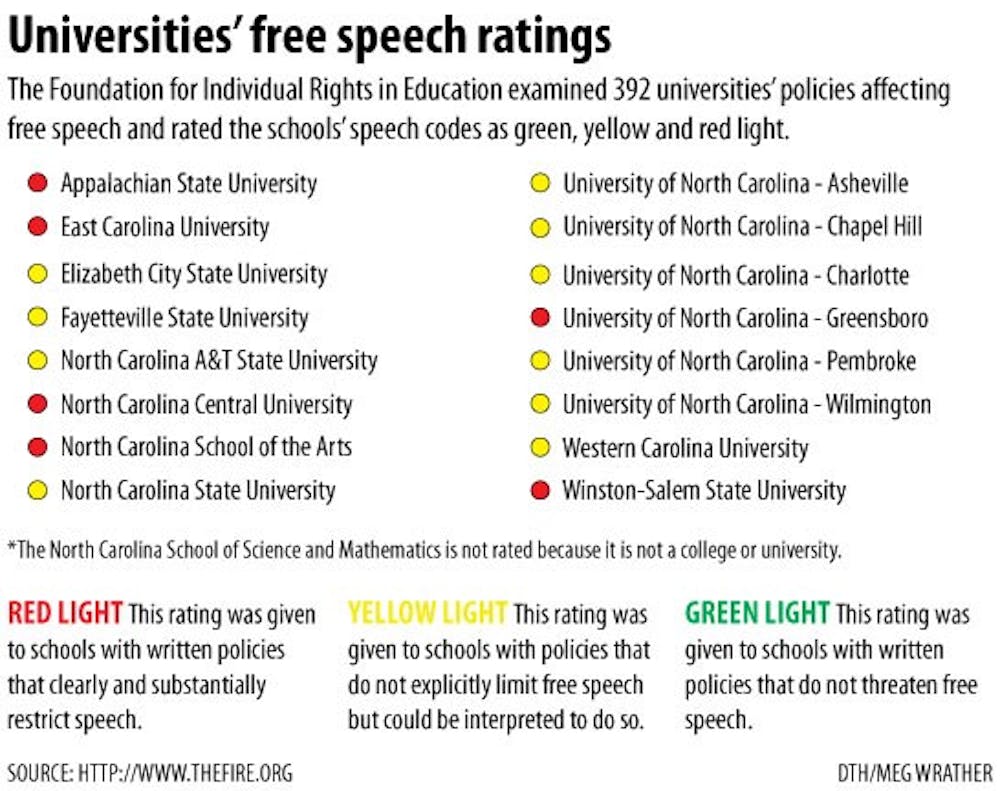The University’s written procedures for sexual harassment, tolerance and other policies could be interpreted as a violation of First Amendment rights, according to a recent study.
The Foundation for Individual Rights in Education (FIRE), a nonpartisan organization that advocates for the protection of civil liberties at universities, conducted the study, which defined campus censorship as university policies prohibiting speech that would otherwise be protected by the First Amendment.
Campus censorship often occurs in the form of obscenity, harassment, anti-bullying, tolerance and Internet usage policies, said Samantha Harris, director of speech code research for FIRE.
The 2012 report outlined certain aspects of UNC-CH and other schools’ policies that threaten free speech. The study gave green, yellow and red light ratings to 392 public and private universities.
Only 14 of the colleges surveyed received green light ratings, the rating given to schools whose written policies did not threaten free speech.
UNC-CH received the yellow light rating because many of its written procedures are “vague” and could be interpreted as campus censorship, Harris said.
An example of one of these policies is the University’s Instrument of Student Governance — a policy that governs the Honor Court’s actions. The policy prohibits conduct that “abuses … or otherwise interferes with another so as to adversely affect academic pursuits.”
“This is very vague,” Harris said. “What does it mean to have an ‘adverse effect’ on someone’s opportunities to benefit from University life?”
Winston Crisp, UNC-CH’s vice chancellor for student affairs, said he is comfortable with the yellow light rating because the University’s policies focus on conduct rather than speech.
Red light ratings were given to 256 of the 392 schools surveyed for policies that FIRE said restrict freedom of speech. Five UNC-system schools received the red light.




